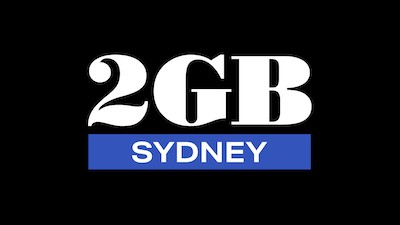Who is the Greatest Programmer in Australia in 2012?

The best programmers in Australia right now – by a long shot – are at the Seven Network.

And radio stations can gain a great deal by following their lead. The Seven Network really is in a different league.
Yet it would also be easy to write off using Seven as Australia’s preeminent example because they currently have such a strong show lineup (as do many radio stations in 2012). Surely it’s as simple as great shows = great ratings.
Only it’s not that simple.
First, developing that on air schedule took time. Seven’s success is the better part of a decade in the making, and they’re to be applauded for relentlessly pursuing their long-term objective.
But even with such a great show lineup now in place, Seven isn’t resting. What they’re doing to make the most of it is inspiring – and it’s where the lessons are. You only have to pay close attention to see that their success is by design, not by accident.
1) It’s about The Audience. It’s never about you.
Program to the disloyal cume. Shows like My Kitchen Rules (MKR) and Revenge might be #1. But over 90% of the population isn’t watching them. Rule #1: when you’re #1 it’s easy to think everyone knows everything you’re doing.
Seven knows better.
Treat every listener like they’re brand new – late to the party. Get them a drink, introduce them to other guests, help them join in. Do they “get” the characters, guests, callers? Do they know what they need to know to “get” the joke, follow the story, join in the contest, understand the topic, anticipate the outcome?
2) It’s about Attention To Detail.
Consider Seven’s current “breakfast show” – My Kitchen Rules. MKR is a case study in Attention To Detail. Consider how much could go wrong. The amount of recycling of content, resetting at the start of the show and every break, integration/sponsorships using content from that night’s show … it would be easy for something to go wrong. It would be easy for a lot to go wrong.
Seven is handcrafted. Their team really is a team, working together to put care into every detail. It’s clearly put together by fine craftspeople – every element is hand-stitched like you’d expect of the leather upholstery in a Bentley. Great radio stations at their best are the same.
3) It’s about Reset! Reset! Reset!
Within a few seconds how do we help people to move from “never heard of you, don’t even care” to “I instantly know enough to be able to join in if I want to” to “potential fan”.
Answer: Reset! Reset! Reset!
We have to make sure a first time listener can join in at any moment. Want to witness brilliant and continuous resets – MKR is so heavily laden with resets that lesser programmers would ease off for fear of viewer fatigue. Forget that. When you’re hot, you’re hot. Amp it up.
Done well, you can’t over-reset. If you think you can, monitor MKR closely.

4) It’s about Recycling.
Resetting is about helping listeners to join the party. Recycling is different – it’s about making the most of your content.
Every segment of MKR requires hundreds of hours of filming – often just for an elusive few seconds of gold. And once the team at Seven has gone to the enormous effort of creating their gold, they’re not using it just once! Recuts and re-edits are used in content, promos, client integration, contestant farewell packages, and elsewhere for cross-promotion.
Pay close attention. You’ll notice variations of the same shot used several times, in new ways so it’s fresh. When you strike gold, re-use it, re-use it, and re-use it again. Cleverly and differently each time.
5) It’s about Truly Outstanding Creative.
The quality of the promos on Seven at the moment is unparalleled. And they’re brilliantly simple. From MKR to Revenge to Australia’s Got Talent, Dancing With the Stars, Pictures of You…
The editing and production values are outstanding – using only the best and key parts to tell a complete and powerful story in just a few seconds. And the shows look like they’re going to be scorching hot. Yet the promos are beautifully simple. For starters, they’re all character and personality-based. Think about that.
For your Breakfast Show promos, your station promos, your major contest promos … your mission, in 30 seconds or less, is to make the listener care passionately about something they’ve never heard of.
6) It’s about Brilliant Talent.

Character and Personality wins. Casting is key. On-air, off-air, in senior management or programming, it’s critical to get the best people.
Whether it’s key talent – or the lengthy casting process to get the perfect contestants for a show like MKR – Seven is doing an outstanding job. And that doesn’t just apply to on air talent.
Long before that, someone has to “cast” the people doing the casting. Seven has spent a lot of time getting the right team in place to take care of this critical point – from the very top of their organization, and all the way down.
Never scrimp on the time or resource necessary for great casting in any role.
7) It’s about Promoting the Hell Out of It.
Let’s put Seven’s creative promo scheduling under the microscope. During MKR pay close attention to which other shows are promoted at what times and how often – and which ones aren’t. It’s Creative Scheduling at its best.
On Mondays, notice how the scheduling of promos for Revenge changes during the course of MKR – much heavier towards the end of the show than the beginning. I.e., even for a powerhouse show like Revenge, Seven doesn’t waste valuable airtime. And notice which shows get promoted more in the first half of MKR. These are techniques you can (and should) apply to your station.
Importantly: what is Seven choosing not to promote during their “breakfast show” (MKR)? Why? Is any of your airtime going to waste? Are you “auto-scheduling” and expecting it to be as powerful as handcrafting? Don’t do it!
8) It’s about Clear Character Definition – In An Instant!
In the MKR opening sequence you see shots of each contestant couple. Pay close attention to the background sets and props – they enhance character definition. Instantly you “get” who they are – the Kiwis with the pastures and rugby ball, Dr Evil & partner at home, The Princess, the larrikin Army boys…
Every detail adds up. Nothing is by coincidence.
A lot is based on character archetypes. Great programmers are students of this. You’ll never see Victoria Grayson (Revenge), and Amanda Woodward (Melrose Place) in the same show. There’s only room for one of each archetype. Are your roles clearly defined?
9) It’s about Success Breeding Success.
When you’ve won the current game, focus on winning the next game … while you’re competition is still scrapping for 2nd place.
One of Seven’s brilliant yet simple strategic moves happened late in 2011. Seven had won the ratings year, they’d won the money, they didn’t need to win the rest of 2011 … so they pulled key shows (like Rafters), saving them for when they could use them in a ratings contest they hadn’t won yet. And, because of it, they’re now reaping the rewards.
This kind of ballsy move puts the competition further behind – adding ratings and psychological pressures to their teams.
10) It’s about The Long Term.
Think long term, and execute simply, brilliantly, and relentlessly – day by day. Seven’s current success is many years – and many day-by-days – in the making.

David Leckie (left) arrived as Seven’s CEO in 2003, and over several years building on one success at a time, created a winning team. In 2012 it includes Tim Worner, Peter Meakin, John Stephens, Angus Ross, and many more key players besides.
Sure, luck played a part – but Seven also create their own luck. One significant early win came in 2005 with the hot new US show Desperate Housewives. Seven cleverly launched the new show with saturation levels of promotion during the Australian Open. That wasn’t luck. For Seven, luck was Lleyton Hewitt being the first Australian to reach the final since 1988. If that were a one-off, history would call it a lucky break. But it’s what they make of the good fortunes that come their way that distinguishes Seven. Day by day, building on success after success, over the last decade the Seven Network has created their own good fortune.
And now they’re doing it again. Some would be happy with being dominant in 2012, and accept that their competitors might have a few peaks during the year. Seven is instead putting Nine on the back foot during what should be Nine’s fate accompli ratings win of 2012 – the Olympics.
Make your own luck. And focus on the long-term, day-by-day.
Management has to have faith to back programmers. This comes from a history of success in your market, which gives confidence in the long term. No significant runs over the long-term means they won’t have that confidence.
_________________________________________________________________
Ultimately, it’s all about “Simple – Executed Brilliantly”. Rarely does one station get it all working together as one. Some disciplined monitoring of Seven – and putting in place what you learn – will improve your station, your shows, and your audience performance.
If you’d like assistance, please feel free to email either of us, below.
| Brad March | Scott Muller | |
 |
 |



